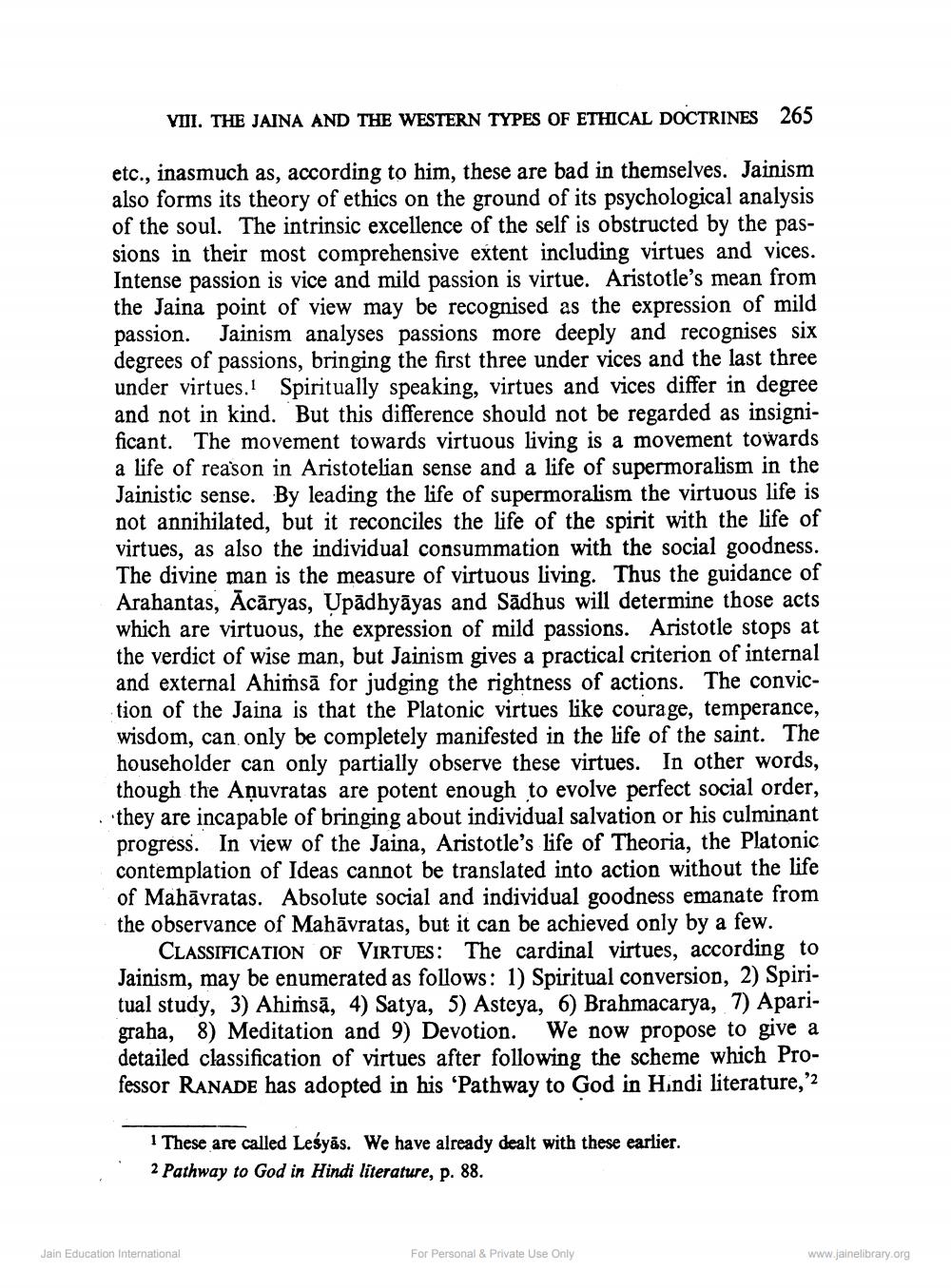________________
VIII. THE JAINA AND THE WESTERN TYPES OF ETHICAL DOCTRINES 265
etc., inasmuch as, according to him, these are bad in themselves. Jainism also forms its theory of ethics on the ground of its psychological analysis of the soul. The intrinsic excellence of the self is obstructed by the passions in their most comprehensive extent including virtues and vices. Intense passion is vice and mild passion is virtue. Aristotle's mean from the Jaina point of view may be recognised as the expression of mild passion. Jainism analyses passions more deeply and recognises six degrees of passions, bringing the first three under vices and the last three under virtues. Spiritually speaking, virtues and vices differ in degree and not in kind. But this difference should not be regarded as insignificant. The movement towards virtuous living is a movement towards a life of reason in Aristotelian sense and a life of supermoralism in the Jainistic sense. By leading the life of supermoralism the virtuous life is not annihilated, but it reconciles the life of the spirit with the life of virtues, as also the individual consummation with the social goodness. The divine man is the measure of virtuous living. Thus the guidance of Arahantas, Ācāryas, Upādhyāyas and Sadhus will determine those acts which are virtuous, the expression of mild passions. Aristotle stops at the verdict of wise man, but Jainism gives a practical criterion of internal and external Ahiṁsā for judging the rightness of actions. The conviction of the Jaina is that the Platonic virtues like courage, temperance, wisdom, can only be completely manifested in the life of the saint. The householder can only partially observe these virtues. In other words,
though the Aņuvratas are potent enough to evolve perfect social order, · they are incapable of bringing about individual salvation or his culminant
progress. In view of the Jaina, Aristotle's life of Theoria, the Platonic contemplation of Ideas cannot be translated into action without the life of Mahāvratas. Absolute social and individual goodness emanate from the observance of Mahāvratas, but it can be achieved only by a few.
CLASSIFICATION OF VIRTUES: The cardinal virtues, according to Jainism, may be enumerated as follows: 1) Spiritual conversion, 2) Spiritual study, 3) Ahimsā, 4) Satya, 5) Asteya, 6) Brahmacarya, 7) Aparigraha, 8) Meditation and 9) Devotion. We now propose to give a detailed classification of virtues after following the scheme which Professor RANADE has adopted in his 'Pathway to God in Hindi literature, '2
1 These are called Leśyās. We have already dealt with these earlier. 2 Pathway to God in Hindi literature, p. 88.
Jain Education International
For Personal & Private Use Only
www.jainelibrary.org




